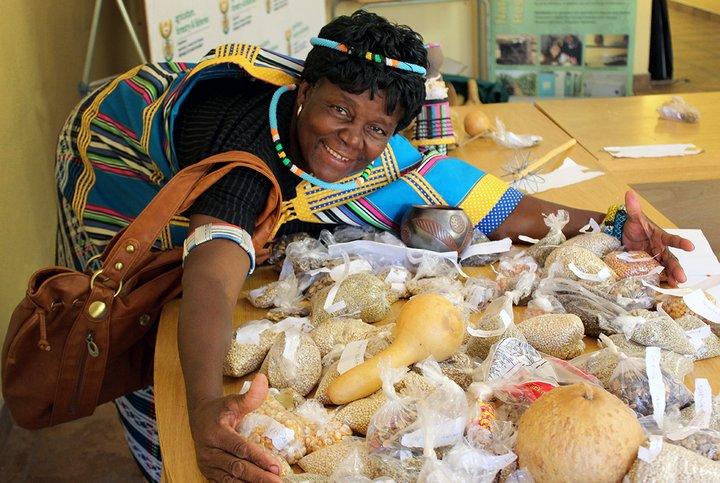Achieving complementarity between informal and formal seed systems

As a contribution to efforts towards achieving complementarity between the informal and formal seed systems, the Global Forum on Agricultural Research hosted a webinar that brought together renowned experts and the agri-food research and innovation community.
The Global Forum on Agricultural Research (GFAR) recently hosted a webinar bringing together renowned experts and the agri-food research and innovation community to discuss on what is needed to achieve complementarity between informal and formal seed systems and the implementation of Farmers' Rights. The participants acknowledged that the desired outcomes are only attainable through joint efforts with different stakeholders and strong partnerships.
Efficiency and functionality of seed systems are improved when the formal and informal seed sector act as complements at country levels. However, a big issue faced in achieving said complementarity is the lack of policy and legal support for smallholder farmers who are at the heart of the informal seed system, as both custodians and innovators of important crop genetic diversity. Despite producing 80% of total seed demand, farmer seed systems in most countries have very little support.
To discuss issues and potential solutions to the problems, and as a natural continuation of its years of work on the topic, GFAR hosted a webinar on 30th May 2017, with a presentation from Bioversity International. The main challenges identified were absences of enabling environment, resources, of trust among stakeholders and of holistic policy framework, as well as differences in understanding and interpretation of the concept of Farmers’ Rights.
Yet in spite of the acknowledged challenges, the webinar demonstrated that there has been positive action taken already towards the goal, and the key in such accomplishing instances have been partnerships. In addition, some countries attempted to improve their policy and legal frameworks to support the informal seed system and provide a more holistic approach to both systems.
The main takeaway for the participants of the webinar was the acknowledgment that joint efforts of different stakeholders and strong partnerships are needed in order to achieve the needed complementarity between formal and informal seed systems. GFAR challenged the participants to think about their own role and identify possible partnerships and collective actions that would further enhance such complementarity. CGIAR hence announced the intention to work with GFAR’s partners to organize a webinar on Farmer’s Rights as a collective action, aim of which would be to explore how the research community promotes implementation of Farmers’ Rights at a local level.
This article was adapted from the GFAR Blog:Webinar Wrap-up: Farmers’ Rights: Achieving Complementarity between the Informal and Formal Seed Systems.
Read it here.
Notes:
Others interested in this topic are invited to share collective actions and identify possible partnerships to enhance complementarity between the systems by contacting Juanita Chaves Posada.
The recording of this GFAR webinar can be found here.
The Power Point presentations made during the webinar can be accessed here.
For answers to the questions unanswered during the webinar, click here.
This research is part of the CGIAR Research Program on CLimate Change, Agriculture and Food Security and is supported by CGIAR Fund Donors
Photo: Seed fair with smallholder farmers in Mutale, Limpopo Province, South Africa. This community has been earmarked by the government to set up a community seedbank. Credit: Bioversity International/R.Vernooy
